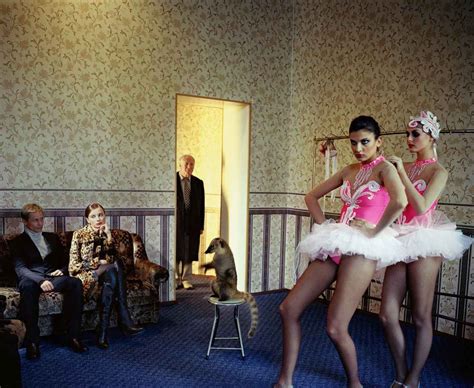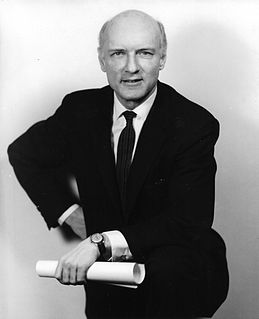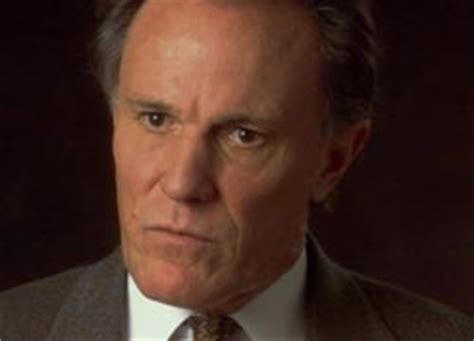A Quote by John Archibald Wheeler
The observer cannot be left out of the description of the observation.
Quote Topics
Related Quotes
A curiously interested observer sees a great deal, a scientifically interested observer is worthy of all honor, and anxiously interested observer sees what others do not see, but a crazy observer sees perhaps the most, his observation is more intense and more persistent, just as the senses of certain animals are sharper than those of man.
The very nature of the quantum theory ... forces us to regard the space-time coordination and the claim of causality, the union of which characterizes the classical theories, as complementary but exclusive features of the description, symbolizing the idealization of observation and description, respectively.
Literature especially has an interesting relationship to photography - to observation, to description, to fiction: taking something that you see and elaborating, jamming, and I think, staging.... taking that moment of observation and letting it go, giving it some wings, following it, rather than nailing it. You're riffing off of reality.
The creativity that comes from silence, from a quiet heart, feels different from that of ambition to both the creator and the observer. When the artist or the worker is out of the way, both the creator and the observer experience the art as simply a gift, an expression of the impersonal intelligence shared by all. The creator has no need to take credit for it, the observer no need to possess it.
When there are conflicts of observation, when experiments cannot be replicated, scientists may then retreat to a study of the various specific observations so as to explain the conflict, in the course of which they would make use of the concept of observation, or of some specification of that concept.
Quantum theory thus reveals a basic oneness of the universe. It shows that we cannot decompose the world into independently existing smallest units. As we penetrate into matter, nature does not show us any isolated "building blocks," but rather appears as a complicated web of relations between the various parts of the whole. These relations always include the observer in an essential way. The human observer constitute the final link in the chain of observational processes, and the properties of any atomic object can be understood only in terms of the object's interaction with the observer.
You cannot know, should I discribe to you; the feelings of a parent . . . . Four years have already past away since you left your native land, and this rural Cottage-Humble indeed, when compared to the Palaces you have visited, and the pomp you have been witness to. But I dare say you have not been so inattentive an observer, as to suppose that Sweet peace, and contentment, cannot inhabit the lowly roof, and bless the tranquil inhabitants, equally guarded and protected, in person and property, in this happy Country, as those who reside in the most elegant and costly dwellings.
Today, we have come a distance. We have made a lot of progress. That cannot be denied. You cannot dispute the fact that our country is so different from 50 years ago. But we still have problems. There are too many people that have been left out and left behind, and they are African American, they are White, Latino, Asian American, and Native American.


































